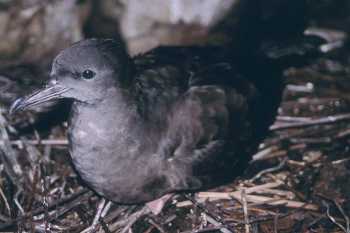Fiona McDuie (Centre for Tropical Environmental & Sustainability Sciences & College of Marine & Environmental Science, James Cook University, Cairns, Australia) and colleagues have published in the open-access journal Marine Ornithology on foraging patterns of Wedge-tailed Shearwaters Puffinus pacificus breeding in Australia.
The paper’s abstract follows:
“To determine whether breeding tropical shearwaters use “at-distance” locations during the long-trip phase of their bimodal foraging cycle, we deployed PTT satellite tracking devices on adult Wedge-tailed Shearwaters Ardenna pacifica of the Great Barrier Reef (GBR), Australia, over three breeding seasons. During the long-trip phase (8–14 d), a component of a bimodal pattern of foraging not seen previously in a tropical shearwater, birds travelled to distant sites in the Coral Sea between 300 and 1100 km from the breeding colony, primarily to the north and east. At-distance foraging sites were in deeper water and closer to seamounts than were near-colony foraging sites used for chick provisioning, a combination of features indicating enhanced prey availability at these at-distance locations. These findings imply that long-term reproductive success at this and likely other GBR colonies is strongly dependent on the continued stability of these at-distance locations, yet at present all are outside the current Great Barrier Reef Marine Park management zone. To adequately conserve GBR seabirds and other marine species using these resources, a conservation strategy integrated with current management practices is needed for the open waters of the Coral Sea.”

Wedge-tailed Shearwater, photograph by Alan Burger
Reference:
McDuie, F., Weeks, S.J., Miller, M.G.R. & Congdon, B.C. 2015. Breeding tropical shearwaters use distant foraging sites when self-provisioning. Marine Ornithology 43: 123-129.
John Cooper, ACAP Information Officer, 24 May 2015

 English
English  Français
Français  Español
Español